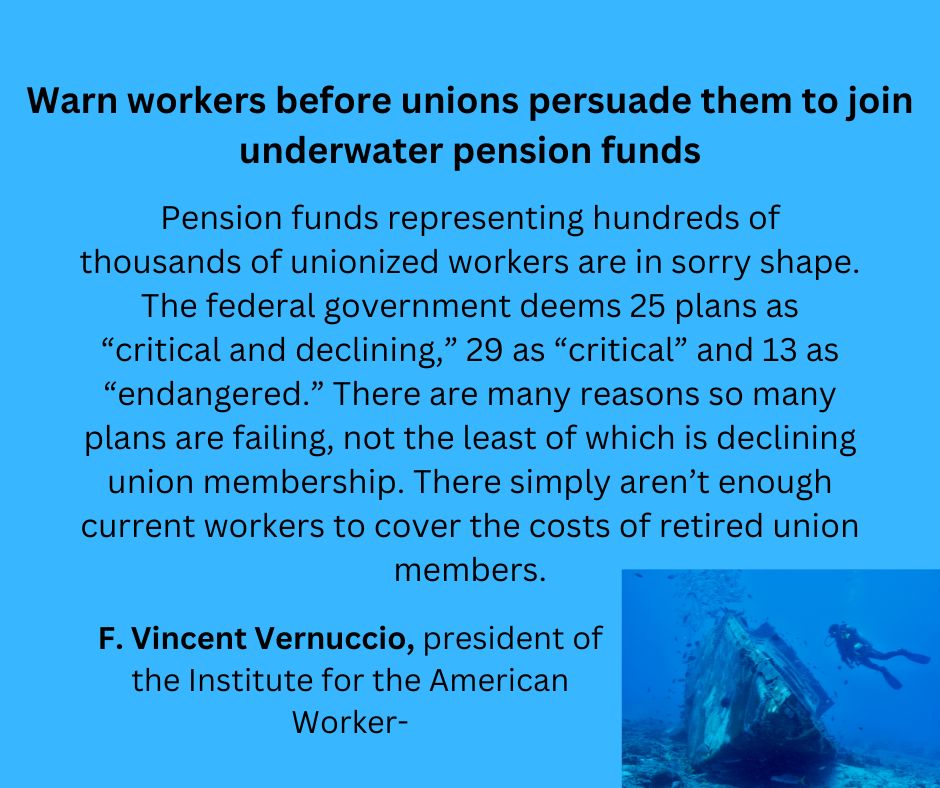Posts tagged Transparency
California: San Mateo County deputies union alleges retaliation behind leader’s felony arrest
November 15, 2024 // On Tuesday, the union along with the San Mateo County Organization of Sheriff’s Sergeants condemned Tapia’s arrest, saying it has “all the earmarks of whistleblower retaliation” in the wake of a report also released Tuesday by the county Board of Supervisors compiled by a retired judge that investigated complaints by the union against civilian chief of staff Victor Aenlle.
Union drive at Wells Fargo heats up as employees allege intimidation tactics
October 21, 2024 // After Wells Fargo was mired in a 2013 scandal over employees who opened millions of fake banking accounts, the bank created a new centralized unit to review customer complaints and employees’ allegations of workplace abuses. Now, however, that team is upended by its own turmoil as its members have accused bank officials of aggressively trying to block a unionization drive and firing employees in retaliation for their efforts to organize.
Union Members Right to Know Act would protect union-worker rights and promote transparency
October 6, 2024 // The Union Members Right to Know Act would guarantee that all workers represented by a union know that they can demand that their dues be used only for collective bargaining purposes or other services essential to unions’ ability to function and generally keep the lights on. It allows workers to prevent their hard-earned dollars being diverted to pay for political activities that they do not support.

Commentary: The Teamsters nonendorsement is an opening for Republicans
September 26, 2024 // This fact has been clear since Trump’s first term. He and his fellow Republicans repeatedly pursued policies that union leaders loathed but union members loved. He protected the rights of independent contractors, which has the support of 67% of union households. Sixty-four percent backed his protection of franchise small businesses from union control. Trump also sought to increase transparency and disclosures of union finances, which 81% of union households support. A second Trump term could see the GOP make further progress on union-member priorities. Polling shows that union members want guaranteed secret-ballot voting, protections for worker privacy, and right-to-work laws — all Republican policies. Yet union leaders oppose these same priorities. The Teamsters president made this fact clear in his speech to the Republican convention this summer, railing against the very policies his own members support. Republicans should ignore union leaders’ far-left demands. They should also ignore union-curious “conservative” groups that want Republicans to compromise on their principles.
Journalists and news staff at Anchorage Daily News aim to unionize
September 12, 2024 // Owner Ryan Binkley, who purchased the newspaper out of bankruptcy in 2017, and Editor David Hulen, who has worked as a reporter and editor with the paper for more than three decades, did not respond to a request for comment on Tuesday afternoon. Megan Pacer, a digital audience producer for the paper, said ADN employees love their jobs, but want a “supportive and sustainable” work environment.

MEMBERSHIP IN SEIU 1000, CALIFORNIA’S LARGEST STATE EMPLOYEES UNION, FALLS BELOW 50 PERCENT
June 20, 2024 // In May 2018, the month before Janus was decided, 96,229 state employees worked under SEIU 1000 contracts, effectively all of whom had union dues or fees deducted from their paychecks by the state. The next month, following the Supreme Court’s ruling, the number of represented employees with union payroll deductions had dropped to 58,953 — a membership rate of 61.4 percent — reflecting the loss of fee payments from nonmembers rendered unconstitutional by Janus.
How California’s nonprofits got dragged into a fight between unions and local governments
June 19, 2024 // It was the latest salvo in a big-money lobbying fight between labor unions and local governments over the hiring of private contractors that perform services for the state’s 4,800 counties, cities, special districts and schools. Local governments rely on contractors to perform a wide range of services paid with taxpayer funds. Contractors run animal shelters and after-school programs. They provide health care in local jails as well as homeless, legal aid and immigration services. Contractors cut fire breaks around rural communities, perform engineering services for public works projects, build affordable housing and fix government computer systems.

Warn workers before unions persuade them to join underwater pension funds
June 13, 2024 // Unions know their pension plans are in serious trouble. The Teamsters have already begged the Biden administration for a $36 billion bailout. At least $127 million of that money went to about 3,500 dead recipients, which was returned only after Sen. Cassidy, Louisiana Republican, investigated the “wrongfully obtained funds.” Yet other union pension plans are still on the road to failure, and no amount of taxpayer money can paper over the underlying challenges they face.

TSA Union Formation Faces Scrutiny
May 30, 2024 // The union that represents TSA agents was put into place via a series of administrative actions undertaken by the Obama Administration. This has led some labor experts to wonder if the union representing these tens of thousands of workers was properly instituted. To address these concerns, Americans for Fair Treatment (AFFT) sought answers through a series of requests made under the federal Freedom of Information Act (FOIA).
Parity in Labor Transparency
April 24, 2024 // The institutional left has sought to reward Big Labor by making union organizing campaigns shorter, or bypassing them with “card check.” Big Labor knows that the dynamics of union organizing rely on labor unions being able to make their pitches to workers from trusted positions without skeptical responses from other workers or employer representatives. And they only need to win the vote once to start collecting dues and engaging in compulsory bargaining. As long as government-recognized and government-empowered compulsory union bargaining exists, the government require workers be given all the information before deciding whether to form a union and bargain collectively. The SALT Act would accomplish this needed reform.
